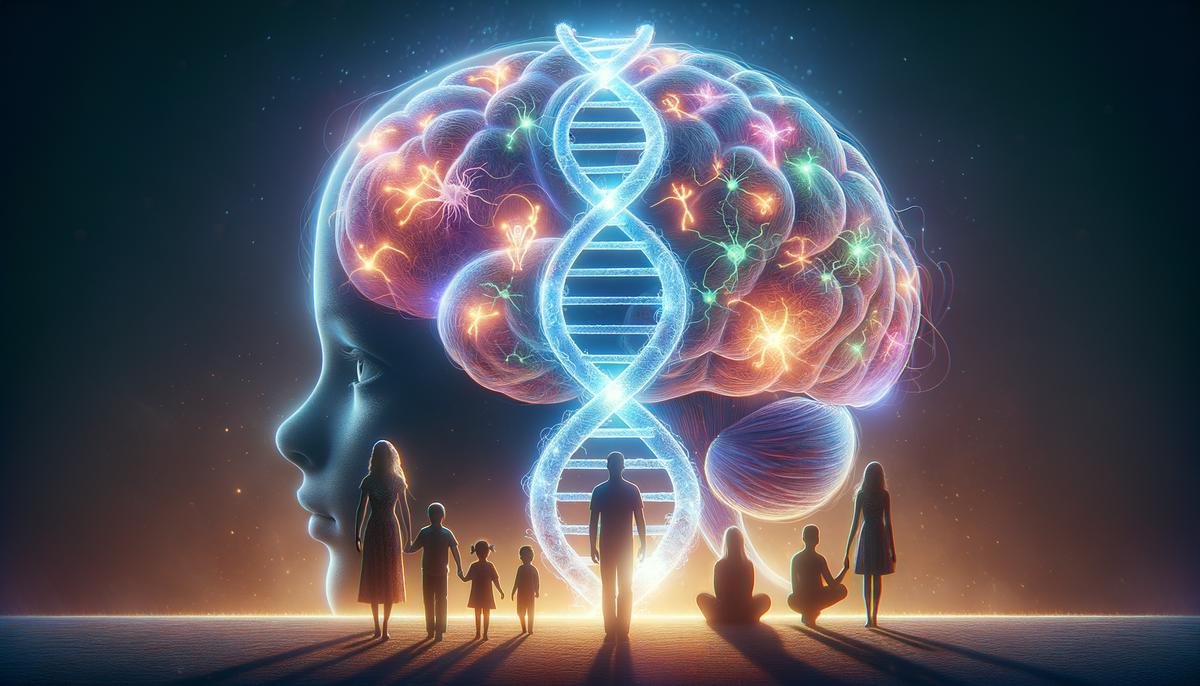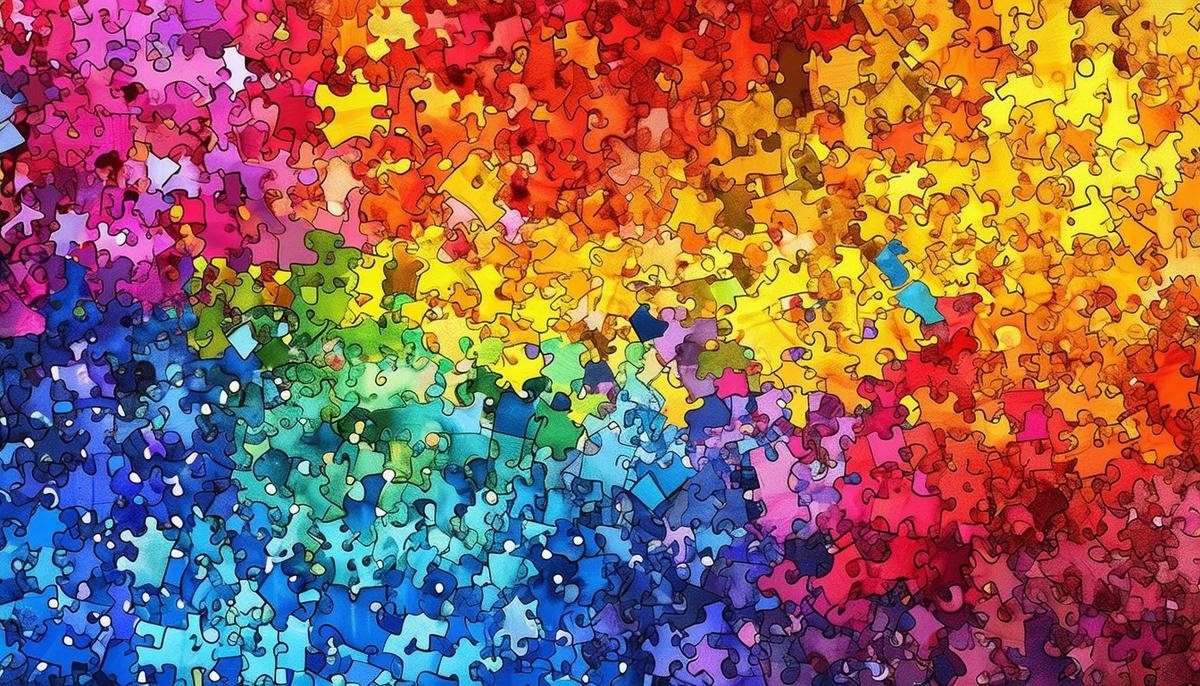
Autism is a complex developmental disorder that encompasses a wide spectrum of symptoms and levels of disability. Yet, like a chord woven from many disparate threads, understanding autism can bring a sense of clarity and direction to those who selflessly devote their lives to caregiving. In this exploration, we will delve into the intricacies of Autism, its diagnosis and common misconceptions, binding this information into a solid foundation for our journey into the day-to-day, emotional, and practical challenges faced by autism caregivers. We will complement this understanding with actual testimonies, giving life to the shared experiences and emotions to help craft a comprehensive view. Equally important, we will navigate towards valuable coping mechanisms, stress management techniques, and avenues for seeking support – crucial lifelines in the often stormy seas of autism caregiving.
Understanding Autism: Basics and Beyond
Title: Understanding Autism and Its Broad Spectrum
Autism! It’s a word you’ve likely come across, perhaps during chats at the playground, public service announcements, or throughout the parenting journey. The chances are high that you might have envisioned it as a single disorder. However, like the unique personality traits that make us who we are as individuals, Autism is as diverse and broad-ranging as people themselves.
So, what exactly is Autism? At its core, Autism, or Autism Spectrum Disorder (ASD) as it’s officially known, is a neurological and developmental disorder that affects the social interactions, communication and behaviour of individuals. It’s “spectrum” in nature and can manifest in a wide range of types and levels of symptoms.
But here’s the essential bit. Picturing Autism is akin to visualizing a rainbow; it’s vibrant and diverse with no two colors – or in this case, individuals – being exactly the same. It’s this factor of uniqueness which gave birth to the term “Autism Spectrum”.
The range of this spectrum includes a set of disorders formerly known as individual disorders like Autistic Disorder, Asperger’s Syndrome, Childhood Disintegrative Disorder (CDD), and Pervasive Developmental Disorder Not Otherwise Specified (PDD-NOS). Now, they’re all lumped together under the single umbrella of Autism Spectrum Disorder.
At one end of the spectrum, you might find individuals with high-functioning Autism, also known as Asperger’s Syndrome. These unique children and adults typically exhibit social challenges and may indulge in particular, focused interests but, generally have unaffected intelligence and language skills. Some might even excel at artistic pursuits, mathematics, or other specialized areas!
Further along the rainbow, some individuals may seem generally unaware of their surroundings. They might have severe cognitive impairment and experience significant difficulty with the simplest forms of social interaction and communication. And yes, as is the nature of any spectrum, there’s a wide range of variables in-between.
Something interesting to remember is that the visibility of Autism varies greatly. Some folks on the spectrum might stand out, while others might blend seamlessly in a crowd. It all merely serves to underline the fact that Autism is not a “one-size-fits-all” condition but rather a shuffle of diverse and individual traits.
People often say, “Knowledge is power”. Knowing what Autism is and the wide-ranging spectrum it can span, is key to understanding our unique, incredibly diverse world. So, let’s take this journey together, with patience, kindness, and acceptance, to embrace the spectrum, and see the amazing rainbow that is Autism.
Remember, every person on this spectrum is unique, special, and supremely loved, and each adds a new color to the vibrant world of Autism.
Let’s celebrate the diversity, embrace the unique strengths, and offer understanding for the challenges. Because, at the end of the day, isn’t that what family and community are all about?

The Emotional Struggles of Autism Caregivers
Unveiled: Emotional Challenges Faced by Caregivers of Individuals with Autism Spectrum Disorder.
Navigating the world as a caregiver for an individual on the Autism spectrum can be a journey filled with stumbling blocks, yet also moments that shine with the beauty and singularities of those they care for. Behind the scenes, away from applause and acknowledgements, caregivers are the unsung heroes making countless sacrifices and continually adapting to the ever-changing needs of their loved ones. Today, we want to highlight the emotional challenges they face daily and offer some pearls of wisdom for weathering these storms.
A significant challenge faced by caregivers is often the immense emotional strain. Supporting someone on the Autism spectrum can be incredibly rewarding, but it’s also a constant juggling act between personal, social, and occupational commitments. This human welfare balancing act can feel overwhelming, leading to feelings of anxiety, depression, and potentially cause caregiver burnout.
The uncertainty and unpredictability associated with Autism can add to this stress. Daily routines can be upended by sudden changes in behavior or interests, which can also initiate a trial and error period of figuring out the “why” and then adapting. This often requires a level of resilience and flexibility that can be daunting.
Navigating societal misconceptions and stigmas around Autism can also take an emotional toll on caregivers. Countless times, they might encounter well-meaning friends, neighbors, or colleagues who offer unsolicited advice or baseless theories that stem from a lack of understanding about Autism. The potential isolation, lack of appreciation, or misunderstanding from others can often reinforce feelings of loneliness and alienation among caregivers.
Communication barriers prevalent among individuals with Autism also pose an inherent emotional challenge. The inability to express love, pain, or basic needs can cause both the caregiver and individual with Autism distress. The significant communication hurdles can occasionally lead to feelings of helplessness and frustration for caregivers.
Despite these challenges, it’s essential to remember that no caregiver is alone in their journey. There are numerous resources and supportive communities available to lean on. It’s okay and entirely normal to have days that feel overwhelming, days when every step forward feels like three steps back and days when tears become a love language.
Reaching out for the support of trained professionals, participating in support groups, and making self-care a priority can be empowering steps towards managing these emotional challenges. Don’t forget that compassion isn’t just for those they care for but also for themselves.
Moreover, it’s crucial to focus on celebrating small victories and finding joy in unexpected places. A breakthrough communication, a shared laugh, or a peaceful meal, each seemingly small moment can become a treasured memory and a beacon of hope.
While these emotional challenges are undeniable, they are just one part of the bigger picture of caring for individuals with Autism. Despite the hardships, the journey is equally filled with moments of profound love, joy, and fulfillment. The bittersweet symphony of caregiver life is, after all, a testament to the power of unwavering love, resilience, and the human spirit.

The Practical Challenges in Autism Caregiving
Every journey of caregiving starts with love. When you commit to support a loved one with Autism Spectrum Disorder (ASD), you are taking a path filled with highs and lows. But side by side, the joys and struggles, the triumphs and hurdles form the beautiful mosaic that is the journey of caregiving. Understanding these practical challenges and learning to navigate them smoothly, can indeed make this journey a harmonious one.
One key challenge caregivers often encounter is the unique ways individuals with Autism learn and process information. Understanding this cognitive discrepancy is crucial. They might not interpret instructions or emotions in a way most people would, or they may have particular sensitivity to certain sensory stimuli like light, sound, touch, taste, and even smell. For caregivers, creating an environment that caters to these unique needs, whilst promoting growth and learning can be daunting.
Then there’s the challenging matter of meltdowns. These intensive bouts of frustration or anxiety can manifest through crying, screaming, aggression, or self-injurious behaviours, which may be tough for the caregiver to manage. It’s vital to remember that this is not a reflection of their upbringing or lack of control, but rather a communication of overwhelming stress or discomfort. Understanding the triggers and knowing how to calm down the person becomes an integral part of any caregiving journey.
The world of therapy, interventions, and educational opportunities open up new sets of practical difficulties for caregivers. Autism treatments are multifaceted and can range from behavioural therapy to medications, and even dietary interventions. Each option needs to be weighed carefully, with its pros and cons considered, tailored to the individual with autism. From insurance coverage to time-commitment, coordination with therapists to constant monitoring, every new intervention adds layers to a caregiver’s responsibility.
Caregiver fatigue too is a practical concern, often overlooked. Caregiver burnout is real, and the constant pressure to remain patient, understanding, and humane can impact the mental health of the caregiver. Respite becomes essential and reaching out to community resources, professional help, or even a trusted friend to vent out has to be normalized.
A lack of societal understanding or compassion can also be heartbreaking at times. Unfortunately, Autism is often stereotyped and stigmatized. People might have misconceptions, passing uninformed judgement without understanding the depth and breadth of the spectrum. As a caregiver, continually educating others, advocating for their loved ones and paving the way for societal acceptance becomes an additional, often exhausting commitment.
Despite the immense challenges that come with caring for an individual with Autism, it’s important to not lose sight of the bigger picture – the pure love, the bonding and the unparalleled joy of witnessing someone become independent. The dance of caregiving is a dynamic one, with swings and shifts, leaps and bounds. But it’s through these ups and downs that caregivers stumble upon those precious moments of joy, growth, and understanding that makes everything worthwhile. And it’s these heart-touching moments, the silent victories, that truly embody the spirit of a caregiver.

Photo by weekendw0rrier on Unsplash
Seeking Support as an Autism Caregiver
Where to Find Support as a Caregiver for Individuals with Autism
Aiding in the growth and progress of an individual with Autism Spectrum Disorder is a fulfilling journey, but it does come with its challenges. It’s essential that caregivers know they don’t have to face these hurdles alone. Various avenues provide support to the dedicated men and women who provide care for autistic individuals. From online communities to professional therapists, getting the support needed is just a question of discovering suitable resources.
Online communities are an accessible place to start. Websites such as Autism Speaks, National Autism Association, and Autism Society offer platforms where families and caregivers can connect, share experiences, and provide mutual support. These environments can feel like a breath of fresh air to those consumed with feelings of isolation or overwhelmed with the quantity of responsibility that lies on their shoulders.
In addition to general support, these websites provide access to webinars, guides, and toolkits that offer practical advice on handling specific situations. Subjects, related to the educational, therapeutic, or behavioral aspects of autism care, including coping strategies for common challenges, can be found. Providing actionable solutions to the challenges faced, these resources are invaluable in helping caregivers feel equipped to handle whatever their loved ones might experience.
Local support groups offer another avenue of assistance. Typically, these groups are facilitated by professionals who understand the complexity and challenges of the autism spectrum. Together, individuals can share their experiences, triumphs, concerns, and failures within a safe space. The bonds formed here can go beyond the meeting rooms, leading to nurturing relationships that add value to the lives of caregivers and autistic individuals alike.
Don’t forget about the potential support that looms right around the corner – in your own neighborhood. Connect with local society organizations, churches, or schools to see if there are resources or support systems dedicated to families and caregivers of those with autism. Even if they don’t directly offer services, they may be able to provide connections to helpful resources or individuals.
Professionally, there are a variety of therapists, counselors, occupational therapists, and Autism-specialized medical professionals available to assist caregivers. These professionals offer expert insights into managing specific ASD symptoms, developing coping strategies, or devising personalized care plans. Their guidance often makes caregiving more manageable, reducing stress and caregiver burnout.
While seeking external resources, don’t underestimate the potential of your own social network. Friends, extended family, and even your workplace may be sources of support, understanding, and encouragement.
Lastly, maintaining personal well-being is vital for any caregiver. Emotional care, physical exercise, and time for relaxation are as important as any other aspect of caregiving.
As a caregiver, remember you’re not alone in your journey. You devote yourself fully to the well-being and growth of your loved one, you deserve to indulge in all the support available out there. Never hesitate to lean on the autism community or professional network – it is these connections that make your difficult moments more manageable, your questions answered, and your victories celebrated.

The challenges faced in caregiving for someone with Autism are multifaceted, poignant, yet not invincible. Our exploration reveals how vital it is to not only comprehend Autism but also empathize with the caregivers’ experience – be it their emotional duress or practical trials and tribulations. More than just a role, autism caregiving shapes the lives and narratives of everyone involved, underscoring the necessity of coping mechanisms, stress management techniques and support systems. Such support can spring from a variety of sources, and on recognizing when to reach out for help, can make all the difference. Thus, understanding and addressing these challenges is paramount in our shared quest to build a more informed, empathetic and supportive world for those on the autism spectrum and their devoted caregivers.




